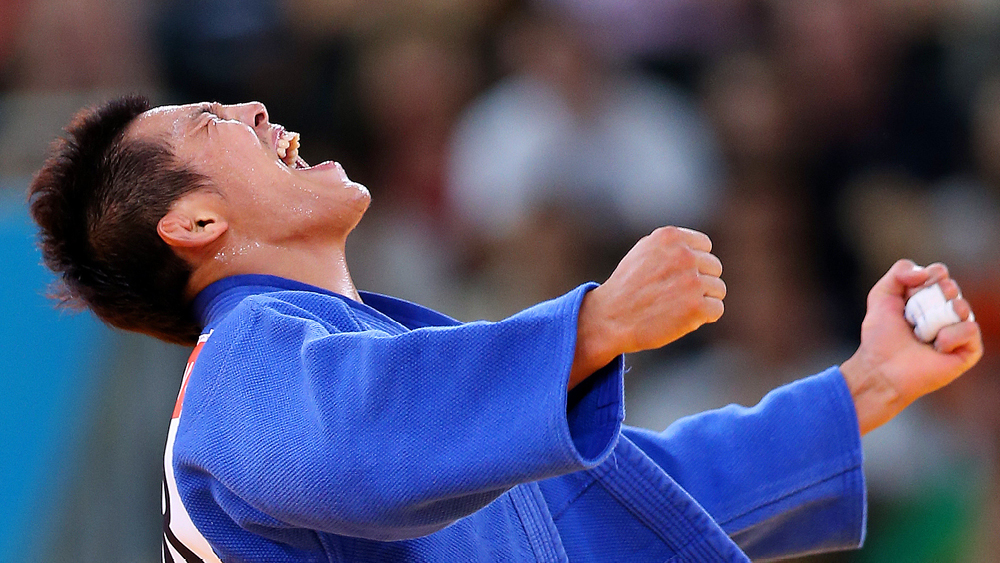It does feel good to win. There’s no denying it. It’s a bit embarrassing to admit, but even winning a coin toss against one’s own pre-schooler gives one a bit of a lift. Or is that just me?
I don’t think it is just me; humans are in fact designed to strive to win. Whether it is clambering over your siblings to get the preferred seat at the dinner table, or improving your spelling, or becoming the biggest encourager in the church, we like to strive to be “the best.”
So are these instincts aspects of our corrupted nature? Or are they part of the image in which God created us? The answer is a bit of both, but we are often not very honest about it. Since humility is such an honourable Christian virtue, we tend to emphasise our anti-competitiveness when we talk about the issue. Let the last be first, and the first, last, we say. “Oh no, you go first. No, you.”
Crushing others for your own benefit is not on, but winning is fine. It’s complicated.
But we still behave most of the time in order to win. We still strive to improve our skills, give advantages to our family members, reign supreme in debates, be first car out of the traffic lights. We “run to obtain the prize,” as the apostle Paul writes. We’re competitive types.
Is this misguided? Parts of the Bible’s teaching are very clear that greed is not good, and placing your confidence in wealth or your own abilities is a road to ruin. Striving to “bigger and bigger”, as the Lorax would say, leads to the Rich Fool’s dilemma: it doesn’t stave off mortality. It can also be a major stumbling block to loving your neighbour.
But striving and competing have their place: overcoming the world, conquering sin, striving for godliness, pressing on towards perfection, are all virtuous Christian behaviours. Winning is fine; rivalry is the thing to which the Bible objects. Crushing others for your own benefit is not on, but winning is fine. It’s complicated.
And it’s even more complicated when we think about the ways you can win in life. So much of it does seem like “luck.” From the genetics lottery, to the people you stumble across, to being the recipient of the random door prize. It’s why competitions of chance are so attractive to us.
I asked a bunch of Facebook friends whether they knew someone who had won a major prize in a competition. Many people did (I didn’t, so now I’m wondering why!). I asked how the win had affected the winners’ lives. I expected a lot of people to tell stories of grief, along the lines of, “he won the Lotto, but lost his wife and family” or “he thought the prize would make him happy, but it just increased his misery.” But that just didn’t happen.
The medal came your way because you were given by God the abilities required to learn, concentrate and persevere.
Most people conveyed delightful stories of people who had enjoyed wonderful overseas holidays, paid off debts, given money to needy friends, or found a new hobby as the result of an unexpected win. The emotional landscape ran from happy to elated. Nary a word of woe among them.
Winning felt good.
Of course, gambling is a profound social illness, and this article is not promoting it. Rather, I’m noticing how thrilling it is to win, how happy it makes us feel, and how it lifts us out of the ordinary grind to imagine a life more worth living. Especially when it is unexpected. And I think I know why: it’s grace. Winning is an instance of grace. Whether you won the University Medal in Medicine after years and years of intense study and sacrifice, or you won a car in a guessing competition, both are instances of grace. The medal came your way because you were given by God the abilities required to learn, concentrate and persevere. The car came your way because, well, providence and grace – that’s what “luck” is to a theist.
And this sense of grace is what we are all hoping for. Rather than the incremental gains of labour and toil, we are all hoping for the grand, elevating, wondrous life. The unexpected but dreamed-of happiness, comfort and fun. We are longing for the heavenly realms, where life is better and good things happen and the limitations of who we are and where we come from are tossed aside in favour of greatness.
An inheritance that will never diminish, never end, never be anything other than delightful. What a win.
There is nothing wrong with this. It is what we were made for. And it’s what the gospel of Jesus provides. Salvation in Christ gives us access to life in all of its fullness. For some of us, that might commence in the here and now. We may experience the grace of God in loving family lives, in our working success, our well-being and well-offness, or in our aesthetic satisfaction. But for all believers, we are guaranteed to experience this grace as we head unstoppably into the new creation, where an everlasting sense of that winning feeling will prevail. All because of the creating and redeeming God’s grace towards us.
It’s why the concept of inheritance works so well to explain what a Christian has received. We are accepted into the inner family circle of God, such that we inherit everything that belongs to that family. It’s all ours – we’ve won it all – not because we deserved it, but because God acts towards us with grace. An inheritance that will never diminish, never end, never be anything other than delightful.
What a win.
Greg Clarke is CEO of Bible Society Australia.

